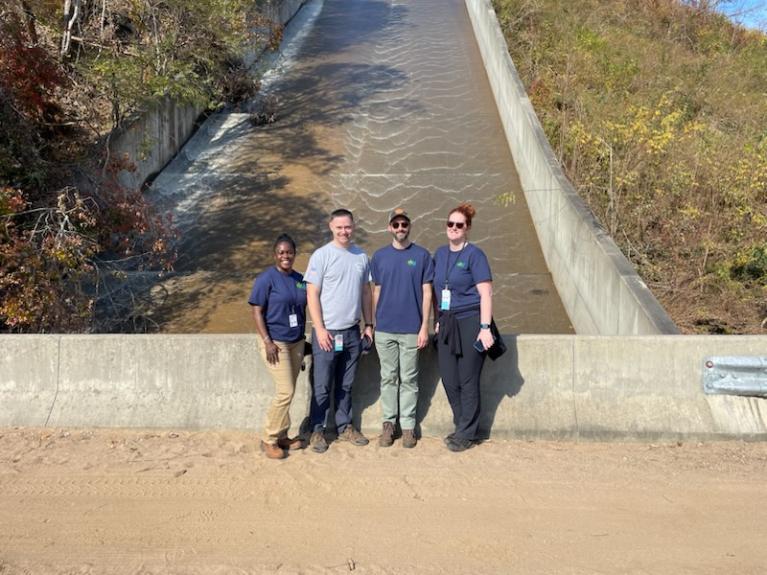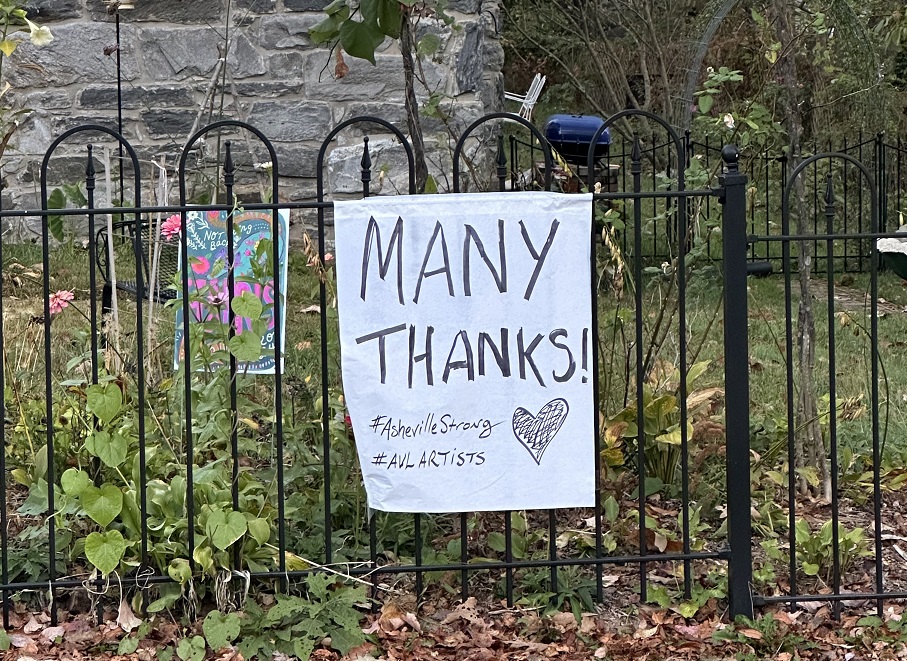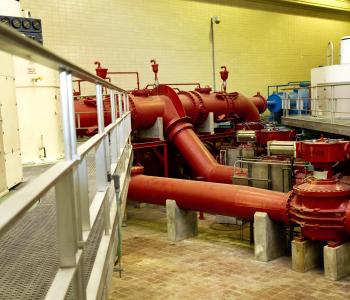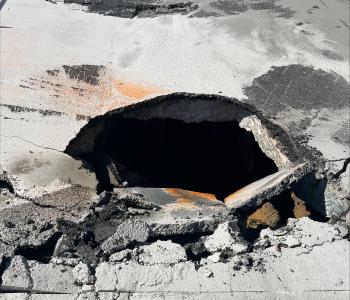‘No Typical Day:’ DC Water Team Learns From Disaster Response in North Carolina

For more than two weeks, DC Water’s team deployed to Asheville, North Carolina, to help the local water utility navigate recovery efforts following the devastating flooding caused by the remnants of Hurricane Helene. The team returned to DC and after a brief respite is back at work with lessons learned from their experience.
The team, Greg Vernon, Chris Coit, Monique Mirabeau, and Sarah Franzheim, supported the Asheville Water Resources Department by collaborating with federal, state, local and private entities supporting recovery efforts, coordinated resource requests, and assisted with expediting infrastructure repairs critical to returning service to customers.
“We could not be prouder of the men and women who went to North Carolina on behalf of DC Water,” said General Manager and Chief Executive Officer David L. Gadis. “Each utility is unique, but there are things we can learn from one another, and we will use this experience to make DC Water more resilient.”
When the DC Water team arrived in mid-October, the process of re-pressurizing the system was already underway, but the water was not yet safe for drinking. On Day 1, the group got to work assessing various infrastructure needs including the North Fork Reservoir & Treatment Plant and the Bee Tree Reservoir, which sustained considerable damage.
“This was a nightmare scenario for any water utility,” said Coit. “Due to significant infrastructure damage inflicted by the storm, customers had no water pressure throughout the system for nearly two weeks. City crews and contractors worked around the clock to rebuild over 300 feet of a 36-inch transmission line in record time.”
As efforts to restore service progressed, more water main breaks started popping up. This required the team to manage resources for crews responding from across North Carolina to get repairs done.
Despite the extensive damage, recent infrastructure improvements spared the area from even worse devastation and emphasized for DC Water the importance of building redundancy and resilience, such as the Clean Rivers Initiative and the recently completed Northeast Boundary Tunnel.
“Had Asheville water not pushed for proactive upgrades to protect and enhance their infrastructure, the likelihood for heavier damages and greater loss of life would’ve been far more catastrophic; much more than the current, horrific, loss,” said Franzheim.
Team members worked in 12-hour shifts, bringing together resources and facilitating support along with the Federal Emergency Management Agency, U.S. Army Corps of Engineers, emergency managers and other state and federal partners to aid repair and rehabilitation efforts.
“The team did an excellent job prioritizing restoration and rehabilitation projects that would help with bringing the water treatment plants back online,” added Mirabeau.
At the outset, the City of Asheville set public expectations that restoring safe drinking water could take months, not days or weeks, which provided a valuable lesson.
“The City of Asheville was wise to not provide timelines for when service would be restored, particularly right after an emergency and to manage expectations. This was the measure Asheville Water took, and it worked well for their public communications,” said Vernon adding, “There was no typical day…There was always a new obstacle, a new task, a new resource, a new partner.”
The assistance the team provided played a key role in the restoration of clean, safe drinking water. After two months the boil water order was finally lifted on November 18, a significant milestone in the long recovery ahead.
“The incredible teamwork and leadership displayed by the City of Asheville Water Resources Department in the aftermath of the storm was a key factor in their successes in restoring service,” said Coit.
As the team returned home, their work in Asheville and the people they met left an indelible mark.
“There were several instances where community members noticed the DC Water “Water is Life” tagline, and they said, ‘that is so true’ and thanked us for being there to help,” said Vernon.
“Everyone we met was genuinely kind, welcoming, and appreciative of our efforts...It was heartwarming to see a community that had been through what was likely one of the most traumatic and devastating events of their lives band together to ensure their community and its people were cared for,” recalled Franzheim. “It reinforced my belief in the power of community and resilience.”
The experience bonded the team with the people of Asheville. They are vested in the city’s recovery, with one DC Water team member saying it “will be something I will be proud to be a part of for the rest of my life.”









